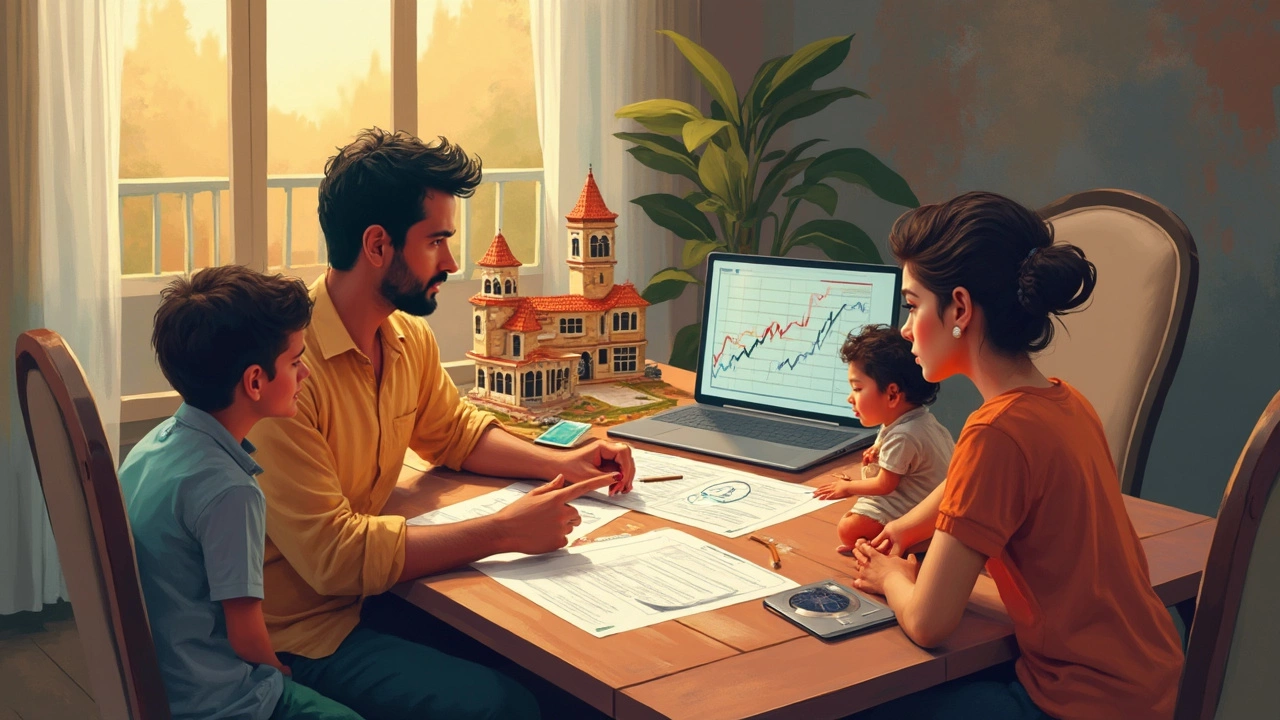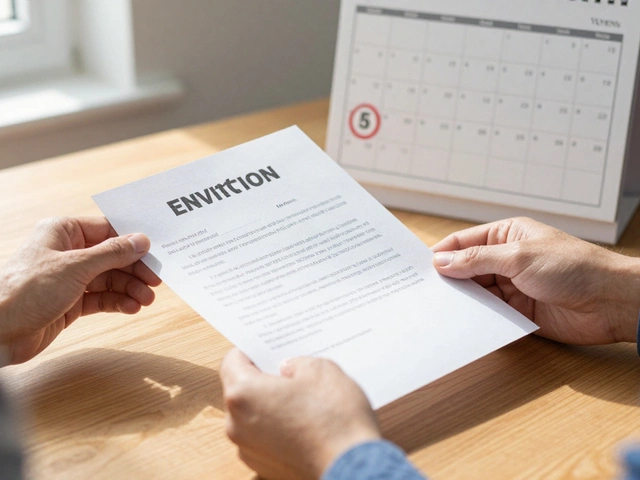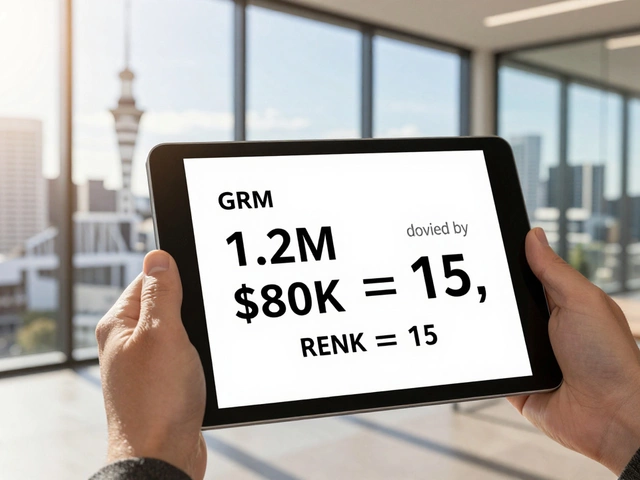Can Rental Properties Make You a Millionaire? The Truth About Real Estate Wealth

Imagine picking up the keys to your first rental property and thinking, "Could this old house make me rich?" That's not just daydreaming—there are plenty of stories about everyday folks who turned rent checks into million-dollar fortunes. But ask ten different property investors how to get there and you'll probably get ten different answers. One thing is simple: building wealth through rental property is possible, but it isn’t easy or guaranteed.
The Real Math Behind Rental Property Wealth
If you’re daydreaming about overnight riches from rental property, let’s burst a few bubbles right off the bat. Getting rich from rentals isn’t about greedy tenants stuffing your pockets with rent month after month. The path is way less glamorous and way more spreadsheet-driven. Most millionaires who started with just one or two rentals didn’t get there by accident—they put in years of careful planning and risk management.
If we get into specifics, in Auckland, NZ, as of mid-2025, the median house price sits around NZ$1.1 million, according to the Real Estate Institute of New Zealand. Average market rent for a three-bedroom place? Roughly NZ$700 per week. Calculate that out for the year, and you’re looking at about NZ$36,400 in gross annual rent. Subtract mortgage repayments, rates, insurance, maintenance, and property management fees, and your first taste of cash flow might actually be a little bitter. This isn’t quick cash.
It gets more interesting when you think about leverage. Using the bank’s money to buy an asset that (hopefully) increases in value is real estate’s superpower. Here’s a simple example:
| Item | Value (NZ$) |
|---|---|
| Purchase price | 1,100,000 |
| 20% down payment | 220,000 |
| Annual rent | 36,400 |
| Loan interest (5.5%) | 48,400 |
| Other annual costs | 12,000 |
| Cash flow (negative) | -24,000 |
Those numbers are sobering. Unless you’ve got a killer deal or you’re fixing up a total “do-up” property, you might start out losing money each month. Auckland’s current high prices and mortgage rates mean positive cash flow is tough unless you buy well below median price or add value. So where do the millionaires actually make their money?
The secret weapon: capital gains. Say the property’s value goes up 6% per year over a decade—a rate that’s not unheard of in Auckland’s best times. That’s nearly NZ$840,000 in added value after 10 years (without factoring compound effects, which make it higher). Add that to the rent, knock off your expenses—now you’re getting somewhere. This is why so many Kiwi landlords chase houses in areas tipped for future growth.
It’s not just Auckland either. Places like Hamilton, Tauranga, even further south, have seen similar patterns (just with different entry prices and rent returns).
But none of this works if you’re maxing out your credit card or panic-selling the property in a market downturn. Wealth from property is all about patience, sweat, and letting time do its thing. The dream is possible, just don’t expect Uber Eats-levels of instant gratification.

Winning Strategies—And the Pitfalls that Kill Dreams
What separates the would-be millionaires from the ones who actually make it? Start by avoiding the rookie mistakes:
- Chasing cash flow in the wrong neighbourhoods. Ultra-cheap houses often mean double the headaches and triple the vacancy risk.
- Maxing out leverage with no buffer. A nasty interest rate hike or longer vacancy could leave you scrambling to cover the mortgage.
- Ignoring boring stuff like maintenance. Little leaks become expensive nightmares faster than your tenants can move out.
- Underestimating the cost of property management. DIY is tempting—until a midnight plumbing disaster or angry tenant calls.
- Betting everything on capital gains. Relying only on rising prices is speculation, not investing.
So what stacks the odds in your favour?
- Start with a solid plan. Set a clear target—how many properties, how much passive income, and by when. Work backwards from there.
- Buy in places with strong long-term fundamentals. Close to transport, schools, jobs, and with a track record of rent demand. Auckland’s older leafy suburbs, or up-and-coming satellite towns, are classic Kiwi examples.
- Don’t buy on hype. Every property cycle has its "hot" market—these often cool faster than expected. Look for value and growth potential, not just recent headlines.
- Use equity to snowball. Once your first property rises in value, borrow against that extra equity to buy the next one. The world’s biggest landlords didn’t buy all their houses with saved cash—they leveraged growth sensibly.
- Add value where you can. The classic Kiwi trick: buy a “do-up,” spend sweat equity, then refinance at a higher value. Renovations, subdivides, or adding a healthy home granny flat—each one boosts returns.
- Keep your ego out of it. Know when to walk away from a bidding war, and when to sell a dud before it costs you more.
Even then, sometimes you’ll take a hit. Rental regulation changes, new taxes, rate hikes, or just a dud tenant can hammer your plans. Property millionaires weather those storms by having cash reserves, insurance, and sometimes even a side hustle to cover shortfalls. A smart investor treats rental property as a business, not a hobby.

The Long Game: Building Wealth That Lasts
Here’s the thing few will say on a podcast or TikTok: rental property is a get-rich-slow scheme. Most Kiwis who made fortunes started with just a single average house. A classic story: buy in your late twenties, scrape together a 20% deposit (family loan, KiwiSaver, years of flatting), rent to steady tenants, do regular repairs, and refinance after a few years of value gains. Use that capital to buy number two—and so on. By the time you hit your forties or fifties, a handful of paid-down houses could be worth a few million. The real freedom comes when you own them mortgage-free, bringing in passive income while you sleep.
Where’s the risk? You’re exposed to property downturns. Each cycle brings corrections. Property values slid 7% in Auckland between 2022 and 2023 before stabilising and growing again. That’s why boring skills like budgeting, negotiation, and patience matter as much as a sharp eye for “the next big suburb.”
Another overlooked bonus: rental properties are one of the few ways regular people can use someone else’s money (the bank’s) to build massive wealth. The key is buying quality, not quantity—you don’t need 20 houses to be rich. Two or three in strong suburbs can be enough for financial independence if managed right. And if you want to shortcut the process, partner up—many Kiwi landlords go in with a mate or family member to split costs and risks.
If you’re serious, here are action steps:
- Crunch the numbers before you buy. Set up a spreadsheet with every possible cost—don’t fudge the “maintenance” row.
- Talk to others doing it. There are property meetup groups in Auckland and heaps of online forums with brutal honesty—learn from other people’s mistakes.
- Shop for financing, not just property. A good mortgage broker can save you tens of thousands in interest over time. Little tweaks on structure pay big dividends.
- Diversify over time. Don’t put all your eggs in the same postcode—spreading buys around different towns spreads your risk.
- Structure your ownership for tax and asset protection. Ask an accountant or property lawyer what makes sense (trust, company, or own in your name).
- Never stop learning—rental laws, building codes, insurance needs, all keep changing. Lazy landlords eventually get bitten.
If you keep your expectations realistic, play the long game, and look for chances to create value (not just wait for it to happen), that question—“Can you become a millionaire from rental property?”—turns into something far more interesting: when, and how many times, do you want to do it?
It’s not about luck or quick flips. It’s about seeing the world as one giant Monopoly board, playing patiently, and using every tool at your disposal. Rental property can genuinely change your life, but only if you treat it like the seriously long—but seriously rewarding—journey it is.



